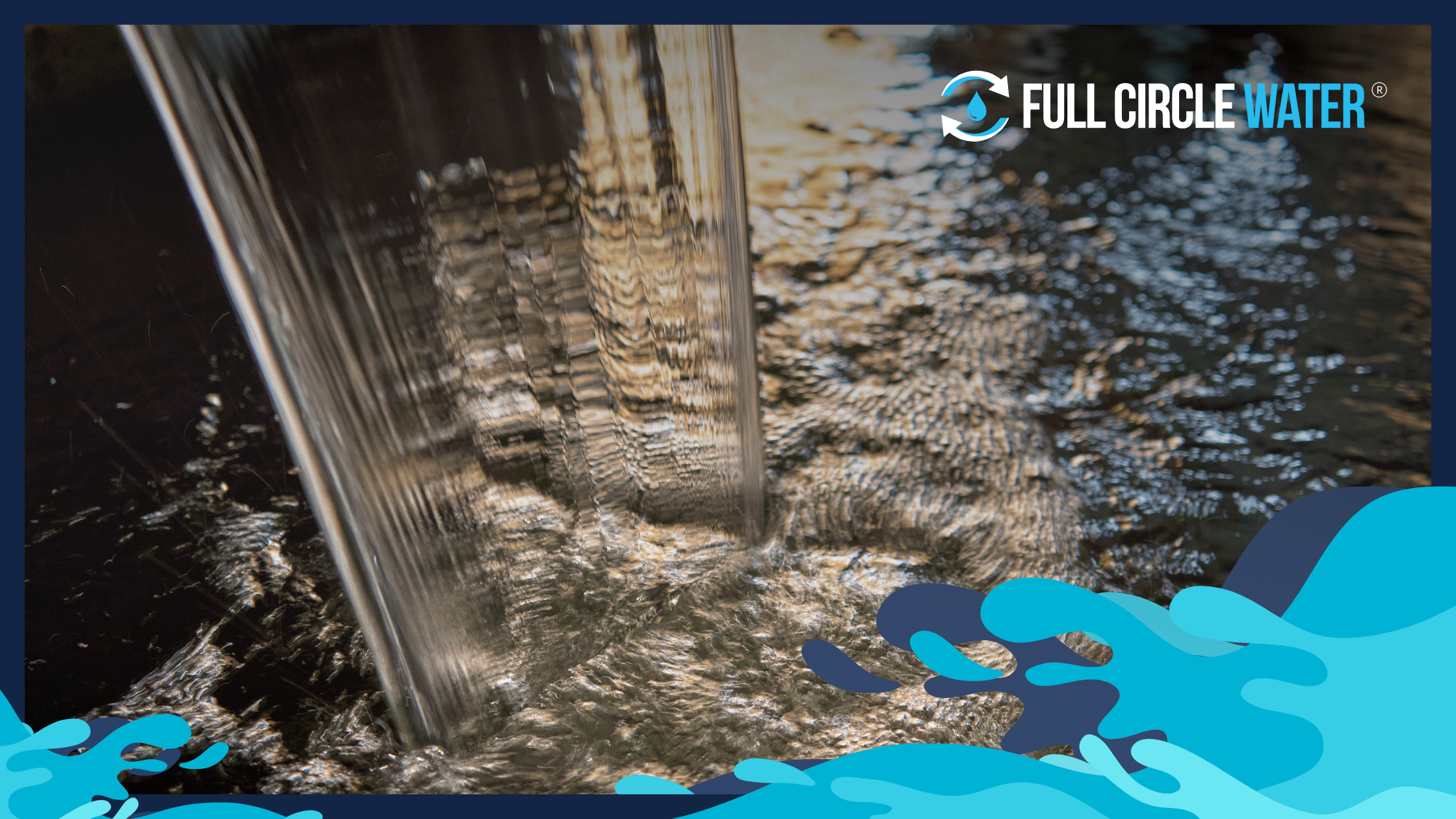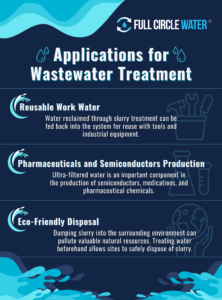
Slurry is a term used to describe a mixture of water and solid particles produced during industrial processes like mining, drilling, construction, and stonework. While slurry is sometimes fed back into a worksite or contained by a fixture like a slurry wall or slurry tank, it is more often transported away from the worksite and disposed of.
Because of its role in heavy industry, slurry can have a major environmental impact, especially if not disposed of properly. Dumping slurry without treatment can result in water pollution and ecosystem damage—not to mention it’s illegal.
The Environmental and Business Necessity of Slurry Treatment
Slurry treatment is the process of separating slurry water from its solid particles and safely recycling or disposing of them. Treating your industrial slurry keeps your worksite in line with slurry regulations, reduces water consumption, and preserves the ecosystem around your worksite and beyond.
Reduce Water Consumption
Treating your slurry allows you to reuse and recycle most of your work water, saving you money on heater bills and reducing or eliminating the risk of environmental contamination. Reducing your worksite’s water footprint can also guard your projects against potential water shortages.
Protect Water Quality
Dumping untreated slurry into the areas around your worksite can contaminate nearby water sources, particularly rivers, lakes, and groundwater. Over time, pollutants can even make their way into wells and drinking water, potentially causing health problems. Wastewater treatment helps protect the health and safety of humans, animals, and plants dependent on local water sources. It can also help your business avoid fines or lawsuits for water pollution.
Preserve the Local Ecosystem
Natural environments, such as wetlands, forests, or grasslands maintain valuable natural processes like water purification, flood control, and carbon storage. They also support a rich diversity of wildlife and plants. Dumping slurry into these ecosystems can irreversibly damage them, eventually causing them to collapse. Employing a water treatment system keeps contaminants out of the lands around your worksite, ensuring they can continue supporting the local community for years to come.
Comply with Regulations
Aside from the ethical implications of dumping slurry, worksites have an obligation to comply with local laws and regulations. These regulations vary depending on the type, source, and destination of the slurry, as well as the local, state, and federal jurisdiction you’re working in. Failure to adhere to these regulations can result in significant fines.
Maintain Your Reputation
Taking an active role in protecting the environment can help boost your business in the eyes of the public, especially among environmentally conscious consumers. Nobody want to do business with a company that gets fined for illegal dumping.
How Full Circle Water Helps with Slurry Treatment
Given the importance of proper slurry storage and treatment, your slurry management system should be professionally installed. The team at Full Circle Water work closely with our clients to design and produce wastewater systems that meet their specific needs. Not only do we build and install customized slurry equipment, but we also help ensure your worksite is regulation-compliant.
We have locations in St. Joseph, MN, and Las Vegas, NV, and serve clients throughout North America. Whether you need a slurry wall, a slurry tanker, a slurry tank, or a slurry treatment system, we have the solution for you.
